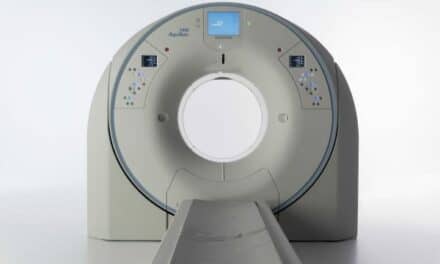The Santa Lúcia Hospital Network, the fourth largest private hospital group in Brazil, has become the first medical site in the country to offer the potentially life-saving benefits of mobile stroke assessment and early intervention to patients, following its purchase of the Samsung NeuroLogica Mobile Stroke Unit. Equipped with a CereTom Elite 8-slice mobile head CT scanner, the hospital system’s Mobile Unit maneuvers easily to private homes, nursing homes, as well as more difficult-to-reach settings, enabling physicians to image stroke patients during or immediately following an event to assess the nature of the stroke and administer clot-busting tPA (tissue plasminogen activator) for ischemic events.
“When seconds can mean a dramatic difference in an outcome, we now bring hospital caliber intervention right to the patient, rather than delaying treatment until the patient reaches the hospital,” says Thais August Martins, director of the Santa Lúcia Hospital Network stroke program. “For some, the seconds saved can mean the difference between life and death.”
The NeuroLogica CereTom Elite delivers high-quality non-contrast, angiography, and contrast perfusion scans. Its combination of rapid imaging time, easy-to-use interface, and immediate image viewing make it ideal for fast, flexible mobile imaging. The unit is housed in a road-ready streamlined ambulance that ensures stability while being transported, as well as patient comfort and ease of use.
Martins points out that the hospital system maintains a longstanding commitment to healthcare innovation. With the NeuroLogica Mobile Stroke Unit, the Santa Lúcia group introduces another powerful medical innovation with the goal of offering patients significantly reduced treatment time from onset of symptoms to the delivery of care.
The Mobile Stroke Unit also contains specialized equipment that allows it to function as a mobile ICU. Additionally, telemedicine infrastructure enables patient images acquired onsite to be sent directly to the neurology, neurosurgery, and neuroradiology departments 24/7 for evaluation and treatment planning while the patient is in transit. Procedures are overseen by a dedicated staff of on-board medical professionals all trained in stroke intervention.
Martins says that last year, 100,608 deaths from cerebrovascular diseases were recorded in Brazil, according to data from the Ministry of Health (DATASUS). “This new service is part of our commitment to following these figures starting in our own community,” he says.
For more information, visit NeuroLogica.




